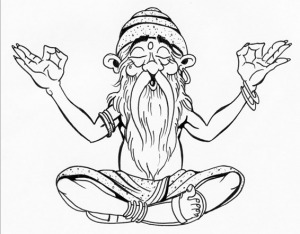Inspired by Allen Ginsberg’s Poem entitled Howl
There are no best minds of my generation.
We are merely abject failures perpetually poised on the cusp of greatness
Constantly apologetic for our pursuit of freedom and independence
Caught between the dichotomy of suburbanite expectations and an urban lifestyle.
These are the Confucian horrors of our times.
Lest you worry I am being racist, I will spare you the pedestrian angst – I do not blame our ancient fathers of varied colours, I only blame us.
We are living their legacy with only the fortitude of preservation. The wanton spirit of creation is lost in the rhetoric you spew about my colour versus yours, my country versus yours, my religion versus yours.
War on the streets has been helmed but the war of words has grown.
To what end, at what cost?
We are a land of myth and magic;
Recall the geographically impossible sighting of a lion by Sang Nila Utama,
The mythical Merlion that guards our shores,
We are the land of transformation, impressive and impossible in scope.
Ignore this at our own peril,
Becoming the land where only the reinforced myth of conservatism prevails.
If I tell you, you are better than everyone else, you will listen to me.
If I tell you, you can be better than yourself, you do not hear me.
If I tell you marriage, children, a HDB flat is not my choice of life, you stare befuddled and ask, ‘but doesn’t everyone want those things?’
People, who know us not, look at this mindlessness and think this must be the product of a long sustained suppression by an external form, a government.
But the repression is within.
An island tied to none, mistaken for bigger continents, we are entirely consumed as a negligible civilization with being the best of the best.
To what end, at what cost?
See the earth we dig deep, the rage that flows out of it, it is our rage.
We are angry,
We are alienated, locked away from our own psyches, oblivious to the varied lives, the diverse options, the endless possibilities.
We see only our fractured selves in each other and rage and rage and rage.
We fuss over identity like mannequins in a store window
Grappling for the insides with only frozen smiles on plastic faces.
We love,
Not as a voyage of discovery,
But as a necessary step in the narrow ladder of social acceptability.
Look upon this mirage of a classless society,
Witness social mobility becoming a foregone conclusion of another era.
To be asked to forecast the trends of the future
Then shut down by the soothsayers of the past,
It is cockblocking for the brightest minds;
This intelligentsia the world sees as powerful sharks,
But you, with your breakable ego,
Only willing to acknowledge mediocrity,
Irrationally look upon them as guppies in a small pond.
Surely this vicious cycle has only one doomsday conclusion
Yet we float, buoyed by the sheer tenacity of a structure laid in place by foresight
Foresight, my friends, is the ability to look out of the past into the future,
To view the immortal land of being with the steady gaze of a pragmatic.
Who can do this?
Now you see what I see
There is no greatness in my generation
We have swallowed the past or spat it out, whenever it suits us.
We live in the present, drunk on the power of potentia.
You have it all, you have what it takes, you are the leaders of tomorrow
And yet we are none of this.
In this age of diversity and discernment and power to the agile,
To lead is not to redeem or conserve, it is to break and build, time and again,
Till death and birth become one and the same,
The shadows of the unknown resurrecting the powerful and the wise.
Reena Devi
This poem is for the ones who love me best uncaged…
